News
-
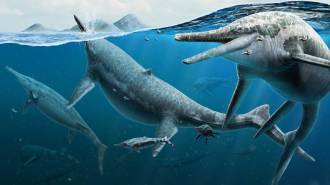 Paleontology
PaleontologyMysterious ichthyosaur graveyard may have been a breeding ground
Some 230 million years ago, massive dolphinlike reptiles gathered to breed in safe waters — just like many modern whales do, a study finds.
-
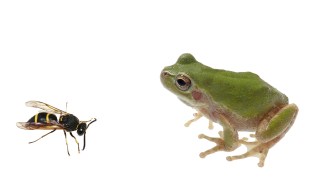 Life
LifeLong genital spines on male wasps can save their lives
A male wasp’s genital spines can save his life in an encounter with a scary tree frog, a new study shows.
By Susan Milius -
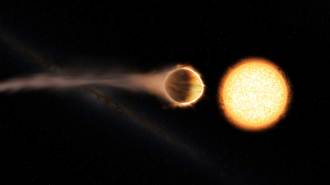 Astronomy
AstronomyThe first planet found by the Kepler space telescope is doomed
The exoplanet dubbed Kepler 1658b is spiraling toward its host star and will meet a fiery death in less than 3 million years.
-
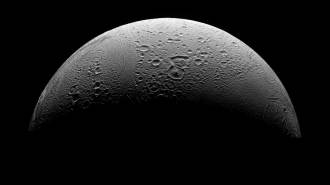 Planetary Science
Planetary ScienceThe last vital ingredient for life has been discovered on Enceladus
The underground ocean on Saturn’s icy moon may contain phosphorus in concentrations thousands of times greater than those found in Earth’s ocean.
By Nikk Ogasa -
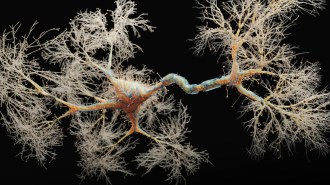 Neuroscience
NeuroscienceAdult mouse brains are teeming with ‘silent synapses’
Nerve cell connections thought to be involved mainly in development could explain how the brain keeps making new memories while holding onto old ones.
-
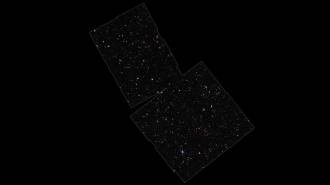 Astronomy
AstronomyHow the James Webb telescope’s glances back in time are reshaping cosmology
The observatory has found dozens of galaxies from less than 550 million years after the Big Bang, suggesting galaxies formed faster than once thought.
-
 Space
SpaceNASA’s Juno spacecraft’s mission has lasted longer than expected
NASA’s Juno spacecraft continues to send back revealing new close-ups of Jupiter and its closest moons.
-
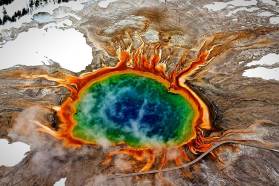 Earth
EarthNo, Yellowstone isn’t about to erupt, even after more magma was found
A new study offers the best views yet of what lurks beneath the Yellowstone supervolcano.
-
 Health & Medicine
Health & MedicineSome common medical terms may be more confusing than doctors think
Got ‘bugs in your urine’ or an ‘impressive’ X-ray? Doctors’ jargon can be confusing, especially terms with different everyday and medical meanings.
By Meghan Rosen -
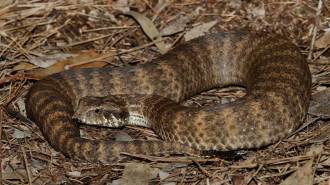 Animals
AnimalsScientists thought snakes didn’t have clitorises. They were wrong
Snakes were long thought to be the only reptile group to lack clitorises. But new findings suggest the sex organs are present after all.
By Jake Buehler -
 Earth
EarthThe Hunga Tonga volcano eruption touched space and spawned a lightning blitz
The eruption of the Hunga Tonga-Hunga Ha’apai volcano in the Pacific Ocean earlier this year was one for the record books — in several surprising ways.
-
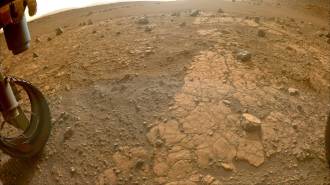 Planetary Science
Planetary ScienceNASA’s Perseverance rover captured the sound of a dust devil on Mars
A whirlwind swept over Perseverance while its microphone was on, capturing the sound of dust grains hitting the mic or the NASA rover’s chassis.
By Sid Perkins